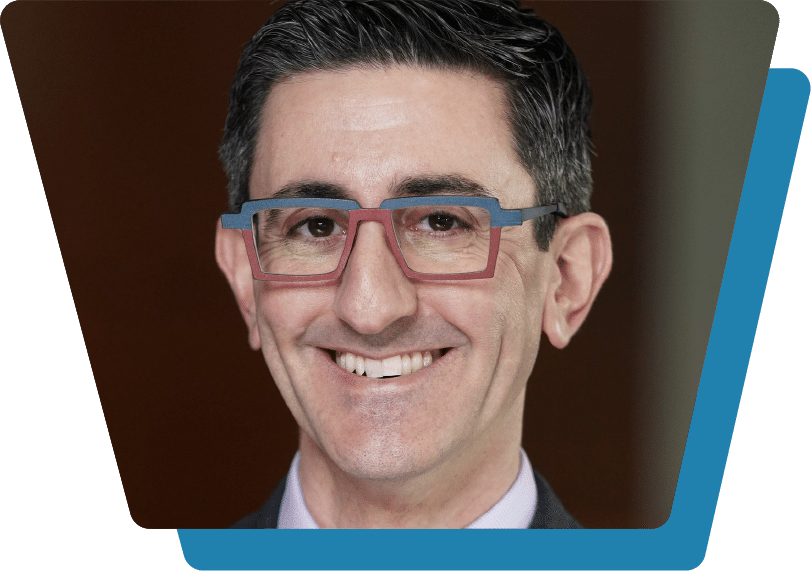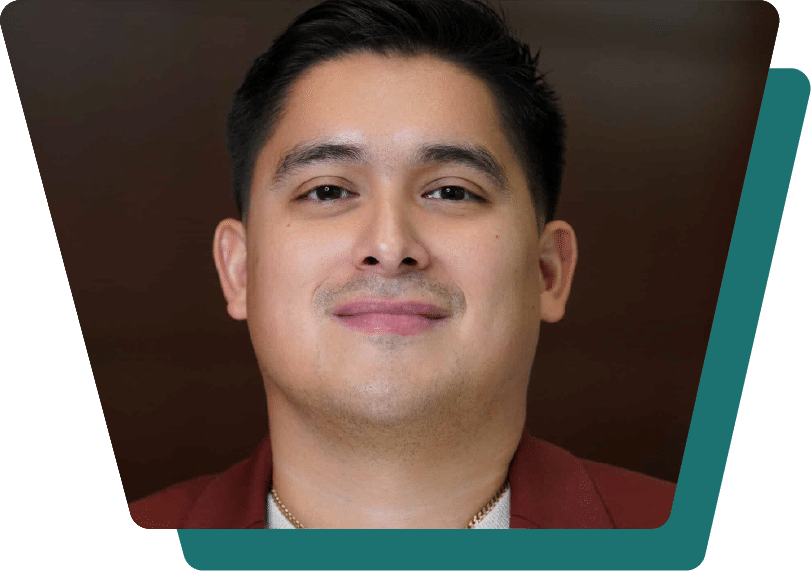This fall, Achieving the Dream will offer two series of professional learning seminars: Building Capacity for Change, a series for teams of faculty developers, faculty, and administrators now entering its third year, and Transforming to Serve Today’s Students, the inaugural series for advisors and student service professionals.
Jon Iuzzini, director for teaching and learning, and Andrés Quintanilla, associate director for holistic student supports, took some time to discuss the importance of professional learning — both for the college teams they’ve supported and within their own careers.
Jon Iuzzini
Director, Teaching & Learning
Like most faculty members, I wasn’t engaged in formal preparation to teach before I taught my first courses at the college level. Something similar happens for those of us who transition to roles in faculty development (i.e., professional learning). There isn’t really a formal degree pathway to do this work — we need to build our capacity to do it well once we’re “on the job,” so to speak. Likewise, our colleges need support as they consider how to leverage professional learning to support equity-focused strategic change.
Recent research shows that professional learning, when it’s done well, advances teaching practice and deepens student learning. As one example, a 2018 Bronx Community College study found that first-year seminar students taught by faculty who were engaged in robust, sustained professional learning had course pass rates of 82%, compared to a 72% pass rate for students taught by faculty engaged in minimal professional learning. Likewise, students taught by faculty engaged in the more robust professional learning earned more credits in their first semester of college and were more likely to return for their second semester.
At ATD, we believe — and the data shows — that the best educators are lifelong learners. We launched the Building Capacity for Change series in 2021 to support college teams committed to this learning. Colleges come to the seminars aiming to tackle a variety of challenges, from increasing retention to redesigning courses to launching centers for teaching and learning. By the end of the program, college teams have developed and refined a comprehensive action plan with support from their ATD coach and are ready to get to work.
“It was an invaluable experience … I feel that there has been a shift collectively in our focus on professional learning and equity-minded implementation of the practices we learned in the program.” – 2020–21 cohort participant
—
By providing college teams with dedicated time, space, and support to work through their goals and learn from each other, we can empower passionate educators to catalyze transformative, equity-focused change at their institutions.
I am deeply grateful for the professional learning experiences I’ve had — first as a new adjunct faculty member, then in my first full-time tenure-track position, and then as I transitioned to lead a teaching & learning center. These experiences have deepened my knowledge and expanded my skill set, but also provided me with professional contacts — these have been incredibly important, enduring relationships in my career. This is what we aim to do with our seminar programs, and I am proud that we have engaged over 30 colleges in this work to date. I’m committed to continue building this community!
Andrés Quintanilla
Associate Director, Holistic Student Supports
Building on the success of ATD’s teaching and learning seminars, we’re now excited to launch Transforming to Serve Today’s Students, an interactive professional learning series to enrich holistic student supports in advising.
A student’s college experience goes beyond their time in the classroom. Advisors in particular play a critical role in helping students navigate course loads, financial obstacles, and the everyday stressors of higher education. When we engage advisors and student support staff in interactive, effective professional learning, they don’t just continue their own growth as lifelong learners — their expanded knowledge and toolset benefits the students they serve.
Many colleges are examining their advising structures and exploring opportunities to update or redesign these systems in a way that makes sense for their students. Some may already have ideas about what they want to design. To support those ideas, ATD’s advising seminar series is designed to connect attendees with their colleagues, provide guidance and facilitated conversations from advising professionals, and share examples and resources to help institutions work toward their advising redesign goals.
“We all want to ensure that our students are successful, that our colleges are efficient, that our communities are vibrant … When we learn with and from each other we can work toward making those things possible.”
—
We are excited to provide advising staff with a unique space to examine current advising structures, interrogate equity gaps or opportunities for growth, and explore opportunities to create more equitable systems that support students through college and beyond. By exploring topics like equity, holistic student supports, communication strategies, and cross-functional collaboration in our seminars, colleges will learn about key advising strategies, which they can bring back to campus.
Through my own professional learning opportunities, I’ve had the privilege to meet with different people across the country. I’ve been exposed to different perspectives, experiences, challenges, and ways to think of solutions. I strongly believe that we are greater than the sum of our parts. We all want to ensure that our students are successful, that our colleges are efficient, that our communities are vibrant, and that our country prospers. When we learn with and from each other we can work toward making those things possible. By being part of a learning community, I’ve been able to build my network and create a community of common cause. I’m excited to grow this community with our colleges and continue to serve all students better.


